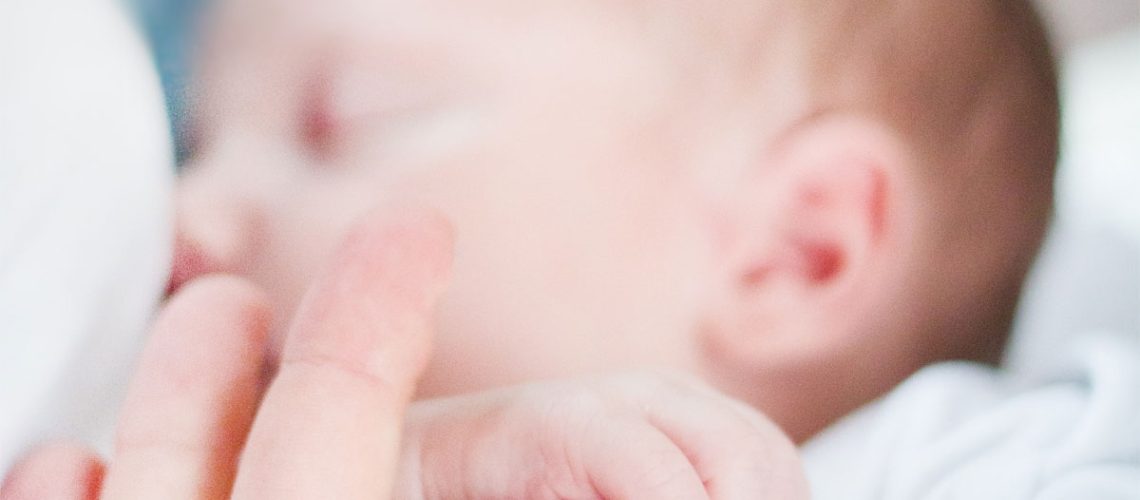It’s been proven that what you eat whilst breastfeeding can obviously have an impact on you and even your baby – Saying that, your breast milk will still be of a good quality even if your dietary habits aren’t.
Here at O’Flynn Medical we care about Mums, so we’ve compiled a list of some healthy eating tips for you, whether you’re feeding or utilising a breast pump.
Diet –
It’s so important to ensure you’re getting the right amount of vitamins and minerals in your food. Ensure you’re eating a well-balanced diet, if you can manage it try and eat at least three full meals per day and top this off with some healthy snacks. Everyone is different however, you may discover that eating small and often multiple times a day is better for you as you try to balance feeding times. Variety is the spice of life, so keep it varied. Lots of fruits and veg, whole grains and lean proteins. A great tip is to keep some fruit and cut up vegetables to hand so you’ll be far more inclined to pick these over an empty-calorie type snack in between feedings or a session with the breast pump.
Breast feeding or breast pump using Moms need to take an estimated extra 300-500 calories per day, so make sure those extra calories are as healthy as they can be. If you’re finding it difficult to set aside the time to make and prepare meals & snacks for yourself be sure to ask a family member or partner to prepare some for you to reduce stress whilst feeding.
Fish –
This may be more difficult for you if you do not enjoy seafood already, but fish is packed full of really powerful omega-3 acids and is also a healthy source of protein. Treat yourself to some power foods like cod, shrimp or salmon 2-3 times per week. Be careful however to not consume swordfish, marlin or shark! Also limit consumption of tuna as these fishes contain high levels or mercury which according to the HSE can have significant impacts on the human nervous system and babies developing brains.
Milk Makers –
Many mums find it difficult to express breast milk during feeding, we find that Mums incorporate a breast pump into their schedule to increase flow but did you know your diet can also help promote a healthy supply of breast milk? Dark green veggies, porridge and almonds have all been proven to support natural milk production and they are also extremely good for you.
Water, water and more Water –
Breastmilk is made up of mostly water, around 87% to be precise. Lots of mums, whether or not they’re expressing via a breast pump or not, report that they feel very thirsty after feeding. It’s imperative to drink plenty of liquids, you’ll have to drink over and above your recommended daily intake as you’ve also got to take your newborns needs into consideration also! Somewhere between 8-12 glasses of water is sufficient. A great way to ensure you’re getting the right amount is to have a glass of water each time you feed or use your breast pump.
Supplements
Healthy diet is absolutely essential and there is no replacement for it, so taking supplements should be seen as what they are – supplementary, not a replacement. By consuming certain supplements you can replenish your own stores of particular minerals and vitamins. Your body can be drained of these for a number of reasons, including due to meeting the increased energy demands of actually producing breast milk. Be careful when taking supplements however as some may contain additives that are not safe to consume when breastfeeding or using a breast pump.
You can introduce a good multivitamin into your daily routine as this will help boost you up. It’s very common for breastfeeding women to be deficient in minerals. B-12 is also hugely important to both you and your baby’s health. B12 rich foods include meat, eggs and fish so this is especially relevant if you are someone who is either vegan or vegetarian. Important to note though that any decent multi-vitamin should have enough B-12 in it to cover you.
Vitamin D is something that every single one of us is lacking in. It’s very difficult to naturally consume vitamin D from foods, the primary way we obtain vitamin D is through absorption from sunlight, so naturally as we live in Ireland we are going to be somewhat deficient. Very low amounts of vitamin D are usually found in breast milk so it is recommended to supplement with about 400 IU daily. Vitamin D is often referred to as the “happy hormone” and has been proven to directly influence our mood, the bad news is that according to research most breastfeeding women become severely deficient in Vitamin D, why can actually lead to an increased risk of postpartum depression. Supplementing with vitamin D is absolutely essential for any mum feeding or using a breast pump.
Things to Avoid –
You can also be proactive in avoiding certain drinks or foods in order to improve the overall feeding experience. Limit caffeinated beverages to 3 cups per day, be this coffee, tea or soft drinks. Too much caffeine isn’t good for Mom or baby. Drinking too much caffeine isn’t harmful but it could potentially lead to your baby being unable to settle. If you’re usually a big coffee drinker and decide you want to quit whilst feeding or using a breast pump, be sure to do this slowly and switch to de-caffeinated coffee as a sudden change can lead to headaches.
Similarly, alcohol is better off to be avoided. According to the HSE, the alcohol level in your breast milk will peak at around 1 hour following consumption of 1 standard unit of alcohol. As the alcohol leaves your body, it also leaves your breast milk. For example, 1 standard drink takes 2 hours, 2 drinks takes 4, 3 takes 6 hours and so on. It’s best to totally avoid alcohol until your baby is at least 3 months and even after this, ensure to express with your breast pump before consuming alcohol so you have a sufficient supply.
It’s also important to take note of relatively small things that could have a huge impact, for example, parsley, sage and peppermint. These are known as anti–galactagogues, meaning that if they are consumed in high enough doses they can actually decrease breast milk supply. Saying this, you would have to be consuming quite a lot for it to actively reduced your production, but if you do notice a reduction you’re far better of avoiding it for a while.
Best Breast Pump & Breast Pump Rental
O’Flynn Medical is the leading supplier of breast pumps and breast pump rental in Ireland. We supply medical grade equipment for you to utilize at home, where and when you need it. From hospital grade electric double breast pumps, to more discreet models, O’Flynn Medical has everything to help support you and your baby during this time.
Find out more about O’Flynn Medical, visit their Profile on WhatsWhat.ie
https://whatswhat.ie/oflynn-medical




